1408 - Consolidated Omnibus Budget Reconciliation Act (COBRA)
Category
Benefits and Insurance
Audience List
- Agency Secretaries
- Personnel Officers
- Personnel Transactions Staff
- Personnel Transactions Supervisors
Synopsis
This policy
- Outlines COBRA eligibility and enrollment procedures.
- Provides notice to employees regarding COBRA qualifying events.
- Outlines a tracking method for dependent enrollments.
Introduction
The Consolidated Omnibus Budget Reconciliation Act (COBRA) of 1985 (enacted July 1, 1986), requires employers with 20 or more employees and maintain group health plans (includes medical, dental, and vision coverage) to offer continuation of benefit coverage for a specific period of time to covered employees, spouses, domestic partners, and dependent children who lose group coverage due to a "qualifying event".
Statement
COBRA is a federally mandated requirement that allows employees and their eligible dependents to continue the employer’s health, dental, and/or vision benefit plan should the individual experience a qualifying event.
Qualified Beneficiary
The term "qualified beneficiary" means, an individual that is eligible to continue group coverage because of a qualifying event. The individual must have been covered under the plan before the qualifying event date. If the individual was not covered, he or she is not eligible for COBRA.
Eligible Dependent Children
CalHR policy requires that dependent children, unless otherwise certified disabled or in process of certification of disability, be deleted from the employee’s state-sponsored dental and vision plans upon turning age 26.
COBRA Qualifying Events
Group coverage can be continued under COBRA for 18 months if the employee loses coverage based on one of the following "qualifying events":
- Voluntary or involuntary termination of employment, other than for gross misconduct;
- Reduction of hours; reduction of hours includes:
- Full-time to Part-time
- Strikes
- Layoffs
- Leave of absence (if the leave results in a loss of coverage)
- Military call-up (24 months of coverage)
- Permanent Intermittent Employee (who loses coverage based on a non-qualifying control period)
Group coverage can be continued under COBRA for 36 months if there is a loss of coverage based one of the following "qualifying events":
- Death of employee;
- Divorce, legal separation, or *termination of domestic partnership; or
- Child ceases to be a dependent (i.e., child turns 26)
Extensions to the 18-month Period
Social Security Disability Extension to the 18-Month Period
The individual may extend their 18 months of continuation coverage for an additional 11 months of coverage, to a maximum of 29 months, for all qualified beneficiary’s if the Social Security Administration determines a qualified beneficiary was disabled according to Title II or XVI of the Social Security Act at the time of the qualifying event or any time during the first 60 days of continuation coverage. This extended period allows disabled persons continued coverage for the period of time that it normally takes to become eligible for Medicare. The state calculates the employees premiums for coverage beyond the initial 18 months at 150% of the state's group coverage premium rate. The qualified individual may continue to pay this premium directly to the plan or its designee each month.
It is the qualified beneficiary's responsibility to obtain this disability determination from the Social Security Administration and provide a copy of the determination to the appropriate plan within 60 days after the date of determination and before the original 18-month COBRA eligibility period expires. It is also the qualified beneficiary’s responsibility to notify the plan within 30 days if a final determination is made that they are no longer disabled.
Special Medicare Entitlement Rule for Dependents Only
If an employee becomes entitled to Medicare benefits prior to the date of an 18-month qualifying event, then his/her dependents are eligible for 18 months of COBRA continuation coverage, or 36 months measured from the date of the Medicare entitlement, whichever is greater.
Example: If the individual becomes entitled to Medicare seven months prior to termination of employment, the dependents are offered 29 months of continuation coverage. The employee is only offered 18 months.
No qualifying event will have continuation coverage to last beyond three years (36 months) from the original date of loss of coverage.
Notice Requirements
Initial COBRA Notice
Federal law and state policy require all state employees be provided with written notification of their COBRA rights within 90 days of their enrollment into state benefit programs.
COBRA Offer
When a COBRA qualifying event occurs i.e., coverage is lost for an over aged dependent, the personnel office must provide the qualified beneficiary a COBRA election notice.
Open Enrollment
The COBRA open enrollment period is usually held annually September through October, and allows eligible COBRA enrollees to change their dental and/or vision plans when they have a COBRA coverage end date after January 1 of the following year.
Enrollment changes made during open enrollment are made directly through the dental and/or vision benefit plans.
Loss of COBRA Eligibility
When loss of COBRA eligibility occurs, departments are required to send the Unavailability of COBRA Notice to the affected person(s). All actions assume the department has provided the employee with the Initial General COBRA Notice.
Application
Refer to Benefits Administration Manual Section 400.
Authorities
Resources
Forms
- Sample COBRA Continuation Election Form: BAM Cobra Attachment C
- Sample COBRA Election Notice : BAM Cobra Attachment B
- Sample Initial General COBRA Notice: BAM Cobra Attachment A
- Sample Initial General COBRA Notice Log: BAM Cobra Attachment E
- Sample Notice of Unavailability of Continuation Coverage: BAM Cobra Attachment D
Related Policies
Web Pages
- Benefits Administration Manual COBRA: Consolidated Omnibus Budget Reconciliation Act
- Open Enrollment Resources: Information and resources to assist HR Professionals in completing open enrollment forms.
Authorized By
Benefits Division
Benefits Division Inquiries
Benefits Division
Contact Person
COBRA Program
CalHR
Phone: 916-909-2863
Email: COBRA@calhr.ca.gov
Superseded Policies
Not Applicable.History
Please note that some PDF Forms may not be opened directly in your browser. These PDF forms may be downloaded and saved to your computer to be opened with Adobe Reader.
